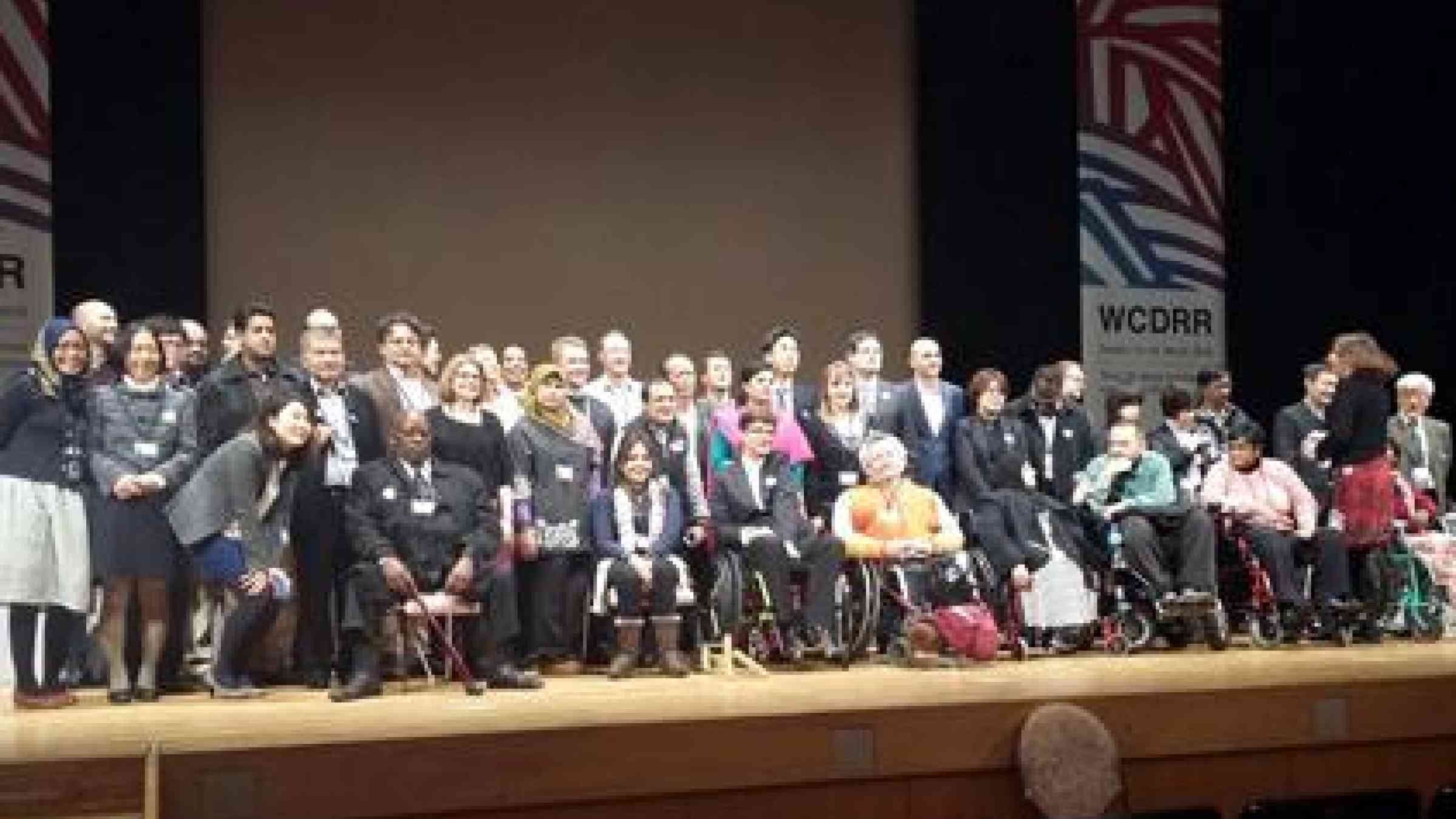
SENDAI, 18 March 2015 – ‘Inclusion builds resilience’ is the clear message from persons with disabilities to the Third UN World Conference on Disaster Risk Reduction.
Significant progress has been made but more needs to be done on inclusion and accessibility across the board, from physical infrastructure to early warning announcements, delegates agreed.
In a clear example of what can be achieved, participants at the working session, ‘Proactive participation of persons with disabilities in inclusive DRR for all’, watched a dramatic representation from one community-based housing initiative for persons with severe psychosocial disabilities.
Using drama to portray challenges of anticipating disaster events – where residents face difficulties with panic and hallucinations – Bethel House, in Urakawa Town, Hokkaido, successfully evacuated within five minutes of the alarm sounding for the 2011 earthquake and tsunami. Regular revisions of the plan, based on group drills, enabled the residents to handle the emergency.
The CEO of the Pacific Disability Forum, Mr Setareki Macanawi, also emphasized the importance of “full and effective” participation of persons with disabilities: “Disaster risk management that includes everyone, including persons with disabilities, contributes to sustainable development.
“All disaster risk reduction practices need to be multi-hazard and multi-sectoral based, inclusive and accessible to be effective. I leave you with the words of Desmond Tutu: ‘My humanity is bound up in yours, for we can only be human together’.”
The Director of the US Federal Emergency Management Agency’s Office of Disability Integration and Coordination, Ms Marcie Roth, said: “We have learned that creating separate or special plans to address the needs of people with disabilities is a failed approach. Instead, the United States strongly supports a ‘whole community’ approach to DRR.
“Participation of the whole community requires equal access to local, statewide and national preparedness activities and programmes without discrimination; meeting the equal access and functional needs of all individuals; and consistent and active engagement and involvement in all aspects of planning.”
The Vice-Minister of Foreign Affairs for Latvia, Ms Zanda Kalniņa-Lukaševica, said she looked forward to a post-2015 framework that was “disability inclusive”. This was in line with political commitments made within the EU.
Under the leadership of the Latvian Presidency, 28 European Union Member States agreed in the recently adopted Council Conclusions that disability-inclusive disaster management has to be addressed by three different stakeholders: individuals, civil societies and Governments.
The Council Conclusions said all three stakeholders have to strengthen their cooperation. They also have to jointly integrate the relevant aspects of needs of persons with disabilities into policy development, risk assessments, disaster management plans and other instruments.
The Chairman of The Nippon Foundation, Yohei Sasakawa was also present. The Nippon Foundation is active around the world in supporting programmes for persons with disabilities.
More than 15 per cent of the world’s population, approximately 1 billion persons live with disabilities. When compared to the general population, persons with disabilities face higher risks and are disproportionately affected in disaster, emergency, and conflict situations.